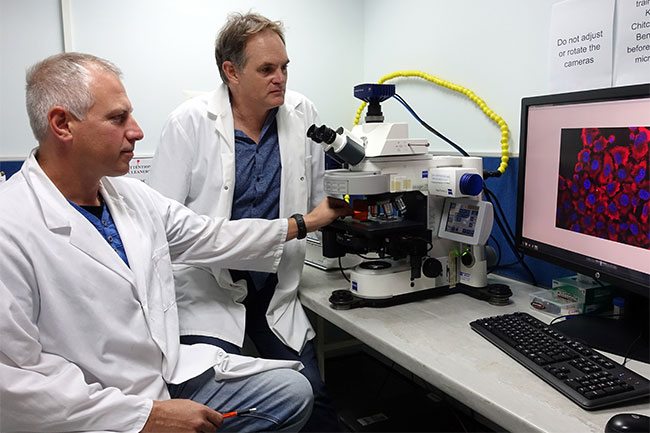
Dr Paul Pace and Professor Mark Hampton observing changes in cells exposed to hydrogen peroxide
With every breath we take the cells in our body make small amounts of hydrogen peroxide. This hydrogen peroxide can act as a signalling molecule, altering communication pathways within cells. However in some diseases, too much hydrogen peroxide is made, causing widespread damage to cells that is difficult to prevent.
Professor Mark Hampton and his team, with the support of a three-year grant from the Royal Society Marsden Fund, will try a new strategy to address this problem.
He says the best way to develop new therapies is to unravel the fundamentals of what is going on inside our cells.
"Hydrogen peroxide triggers many different responses in cells, but we think it does so via a relatively small number of sensor proteins. Understanding how these sensor proteins relay information to other proteins, and designing ways of disrupting that information flow might provide a novel way of protecting our cells from excess hydrogen peroxide.”
Diseases that could benefit from novel therapeutics include neurological disorders such as Alzheimer's disease, where hydrogen peroxide is made by abnormal proteins, or following heart attacks and stroke, where hydrogen peroxide generation increases. Immune cells can also cause damage by making too much hydrogen peroxide during infections and inflammation, and some tumors appear to have disturbances in hydrogen peroxide metabolism.
Professor Hampton is the director of the University of Otago, Christchurch's Centre for Free Radical Research.